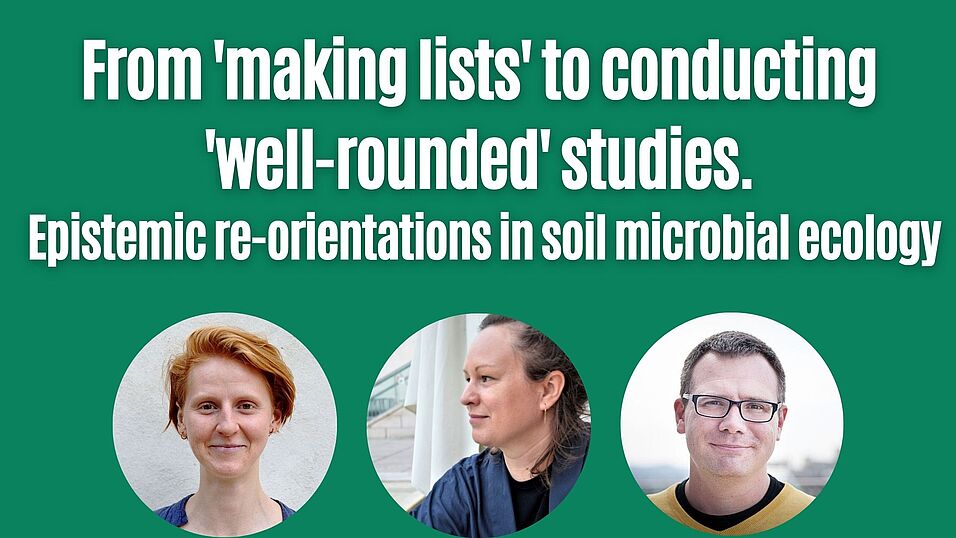From ‘making lists’ to conducting ‘well-rounded’ studies: Epistemic re-orientations in soil microbial ecology
This paper is the result of a longer-term collaboration and reflection process with (mostly soil) researchers in the FWF-project "Valuing, Being, Knowing" that we describe in this blog post.
Abstract
Soil microbial ecology is a relatively young research field that became established around the middle of the 20th century and has grown considerably since then. We analyze two epistemic re-orientations in the field, asking how possibilities for creating do-able problems within current conditions of research governance and researchers’ collective sense-making about new, more desirable modes of research were intertwined in these developments. We show that a first re-orientation towards molecular omics studies was comparably straightforward to bring about because it allowed researchers to gain resources for their work and to build careers—in other words, to create do-able problems. Yet, over time this mode of research developed into a scientific bandwagon from which researchers found it difficult to depart, even as they considered this kind of work as producing mostly descriptive studies rather than exploring interesting and important ecological questions. Researchers currently wish to re-orient their field again, towards a new mode of conducting ‘well-rounded’ interdisciplinary and ecologically-relevant studies. This re-orientation is, however, not easy to put into practice. In contrast to omics studies, this new mode of research does not easily enable the creation of do-able problems for two reasons. First, it is not as readily ‘packaged’ and hence more difficult to align with institutional and funding frameworks as well as with demands for productivity and career building. Second, while the first re-orientation was part of a broader exciting bandwagon across the life sciences and promised apparent discoveries, the current re-orientation goes along with a different sense of novelty, exploring complex environmental relations and building an understanding at the intersection of disciplines, instead of pushing a clearly circumscribed frontier. Ultimately, our analysis raises questions about whether current conditions of research governance structurally privilege particular kinds of scientific re-orientation over others.
Keywords: epistemic re-orientation, do-ability, research practices, scientific innovation, research governance
DOI:https://doi-org.uaccess.univie.ac.at/10.1177/03063127231179700
You can read the full article here.

